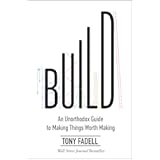Essential Truths for College Students Navigating Adulthood
Navigating the complex world of college life and preparing for post-graduation often feels overwhelming. Many students face similar questions. Important lessons are often learned through firsthand experience. This period is a significant transition for young adults. Crucial advice can guide these formative years. The video above offers valuable insights. This article further expands on these core principles. It aims to provide practical truths for every college student.
Preparing for adulthood requires thoughtful consideration. Financial decisions are particularly critical. Career paths are shaped during these years. Personal growth also plays a vital role. Understanding key truths can prevent common pitfalls. This guide provides an in-depth look. It helps students make informed choices. Future success is often determined by early habits.
The Realities of Student Loans and College Costs
Student loans represent a significant financial commitment. Every dollar borrowed must be repaid. This repayment often brings considerable burden. Reports indicate that average student loan debt in the U.S. now exceeds $30,000 per borrower. This sum can greatly impact future financial freedom. Careful consideration of borrowing is essential.
It is strongly advised to take out only the bare minimum. Funds should cover educational necessities. Working during school is highly encouraged. Jobs during breaks provide valuable income. The cost of a chosen college should be a major factor. Tuition and living expenses vary widely. Many institutions offer similar educational outcomes. However, debt levels can differ substantially.
Student loans should never be used for discretionary spending. This includes lifestyle upgrades or extensive partying. Studies show a significant number of students use loans for living expenses. For instance, some students borrow extra to rent private apartments. This avoids commuting from parents’ homes. Such decisions are frequently regretted later. Every borrowed dollar contributes to future financial strain. Prioritizing essential education costs is paramount.
Colleges are ultimately businesses. They actively seek enrollment. Their financial viability often depends on student numbers. Institutions do not prioritize your future finances. Your professional prospects are also not their primary concern. They will encourage spending on degrees. Even high-cost degrees might be presented as ideal. A $200,000 literature degree is one example. Admissions staff often provide a positive outlook. Their advice should be taken with caution. Personal financial research is always recommended.
Building a Strong Foundation for Your Career
Securing a job after graduation involves more than just grades. Your portfolio is a critical component. This showcases practical skills and projects. In-person connections hold immense value. Networking builds professional relationships. Relevant work experience is highly sought after. Internships and part-time roles are vital.
Your GPA mainly serves graduate school applications. Most employers rarely check academic grades. A recent survey indicated less than 10% of employers prioritize GPA. Practical skills are valued more highly. Hands-on experience often outweighs academic performance. Building a robust portfolio demonstrates capability. Employers want to see what you can do. Focus on skill development and real-world application.
Internships, on-campus jobs, and work-study positions are crucial. These opportunities should be taken seriously. Every role offers a chance to gain experience. Slacking off should be avoided. Even seemingly minor roles matter significantly. Your manager at a campus bookstore can be a vital reference. These connections are often your only references post-graduation. Cultivating a strong work ethic early is essential. It provides a foundation for future career success.
Personal connections hold immense power. One in-person connection can be as valuable as 50 resumes. Many online applications are sent “into the void.” They often receive minimal attention. Statistics suggest a large percentage of jobs are filled through networking. Utilizing platforms like LinkedIn is effective. Attending career events provides opportunities. Asking insightful questions during informational interviews helps. Posted jobs are often the least likely to be secured. A significant portion of these roles are filled internally. Proactive networking opens doors to unadvertised positions.
Cultivating Essential Life Skills and Habits
Developing clean and organized living habits is important. This should start now, not after graduation. College provides a perfect environment for habit formation. Sloppy habits in college often persist. Transitioning to a structured adult world becomes difficult. Living spaces should be treated with care. Developing routines for cleaning is beneficial. This fosters responsibility and self-discipline. Good habits formed now will serve you well later.
Living with parents after graduation doesn’t guarantee savings. For many, it provides an excuse to spend freely. Real bills are absent, reducing financial pressure. Personal experiences often highlight this risk. Without direct financial responsibility, money can be taken less seriously. Credit can be ruined despite living at home. It is crucial to create a mock budget. This budget should include rent, utilities, and other expenses. These simulated payments should be directed to savings. Automating savings is highly recommended. Money should be transferred immediately upon receiving a paycheck. This prevents impulsive spending during periods of no bills.
Mastering basic recipes is a valuable college goal. Aim for five simple, inexpensive meals. This skill prevents reliance on packaged foods. Waiting until post-college life often leads to panic. Many adults realize their diets are poor later. Learning to cook promotes healthier eating. It also saves significant money. Cooking simple meals becomes a lifelong asset. Financial health and physical well-being are linked.
Setting up good credit habits is paramount. College often involves FOMO (Fear Of Missing Out) spending. Every experience feels like an adventure. Purchases are justified as part of college life. These habits can lead to credit card debt. Automating bill payments with a credit card is smart. Leaving the card at home removes temptation. Graduating with a good credit score and no debt is a huge advantage. This provides a strong financial head start. It is often compared to a “superstar” boost in a game.
Navigating Post-Graduation Pathways
Grad school should not be a delay tactic. It should serve a clear career purpose. Avoid enrolling merely to postpone “real life.” Law school, for instance, requires specific vocational interest. It is not for those who simply “don’t know what else to do.” A graduate degree must be an essential career component. Research job market demand for advanced degrees. Consider the significant financial and time investment. A clear career plan must support the decision.
Unpaid internships should be viewed cautiously. Many are actually illegal. They often fail to deliver promised career advantages. Reports show a significant portion exploit students. They can set a path of unfulfilled promises. Only accept unpaid internships if benefits are clear. Tangible career help must be evident. Otherwise, other opportunities are available. Focus on paid internships. These offer both experience and fair compensation. Your time and skills have value.
Your future path does not need to be precisely defined. Knowing your 10-year plan upon graduation is not necessary. In fact, rigidity can lead to frustration. Life often takes unexpected turns. Many successful individuals found their path later. Flexibility and adaptability are key. Focus on opportunities as they arise. Prioritize personal happiness and growth. The “right path” often unfolds organically. Pressure to follow one route can stifle development. Embracing uncertainty is part of the journey.
College primarily proves your ability to learn. It teaches critical thinking and problem-solving. Most professional skills are acquired on the job. Expect to learn practical tasks during employment. Employers value adaptability and a learning mindset. College provides a foundational understanding. Real-world application comes through experience. Be prepared to continuously learn and adapt. Professional development is an ongoing process.
Personal Growth Beyond Academics
Putting yourself first is crucial during this period. This applies to career, future, and relationships. Career decisions should align with personal goals. Moving to a new city for opportunities is wise. It should not be dictated by a new relationship. Your future should not revolve around a romantic partner. Strong relationships will naturally coincide with personal growth. Prioritizing your own development is empowering. It establishes a strong sense of self.
Finding the right career path takes time. It can literally take years to discover. Setting strict deadlines often leads to disappointment. There is no such thing as a “perfect job.” Careers evolve, and interests change. Patience and exploration are vital. Embrace the journey of discovery. Focus on finding work that brings satisfaction. Remember that career satisfaction often grows over time. It is a process, not a destination.
Avoid those who claim “These are the best years of your life!” This mindset can lead to excessive spending. It creates a false sense of urgency. You have an entire lifetime for new experiences. Travel, new paths, and mistakes are lifelong opportunities. Do not feel pressured to “rack up” life experience points. True growth happens continuously. Life after college holds its own unique joys. Embrace every stage of your journey. Many fulfilling experiences await in adulthood.
Studying abroad is not always necessary. It should be avoided if it incurs further debt. Many alternative ways exist to see the world. Traveling and living abroad can be achieved without debt. Opportunities like au pair programs exist. Remote work allows international living while earning. Do not be convinced it is your only chance. Many study abroad programs focus more on social life. Cultural immersion is often minimal. Prioritize financial prudence when considering international experiences.
Your college friend group will likely change. Very few or possibly none will remain close friends in 10 years. This evolution is entirely natural. People change, move, and develop new interests. Personalities evolve over time. It is not an indictment of your friendships. Maintaining one or two close college friends is a huge success. Absence of these friendships is not a failure. Cherish the bonds made now. Understand that life naturally shifts connections.
Pick at least one non-work activity. Dedicate yourself to maintaining it post-graduation. Hobbies are often free and accessible in college. A community of like-minded individuals is readily available. It is easy to underestimate their importance. Being a well-rounded adult requires interests outside work. Hobbies provide mental breaks and personal fulfillment. Prioritizing personal interests fosters balance. This commitment ensures continued personal growth.
Expect to experience significant failure. At least one major setback will likely occur. This is common in the first few years after graduation. It could be a job, relationship, or financial struggle. Accepting this is part of transitioning to the real world. Learning from mistakes is invaluable. Being fired or experiencing financial ruin can lead to growth. These challenges often foster resilience. They deepen appreciation for current successes. Ultimately, most individuals navigate these challenges successfully. You are likely doing just fine as a college student.






